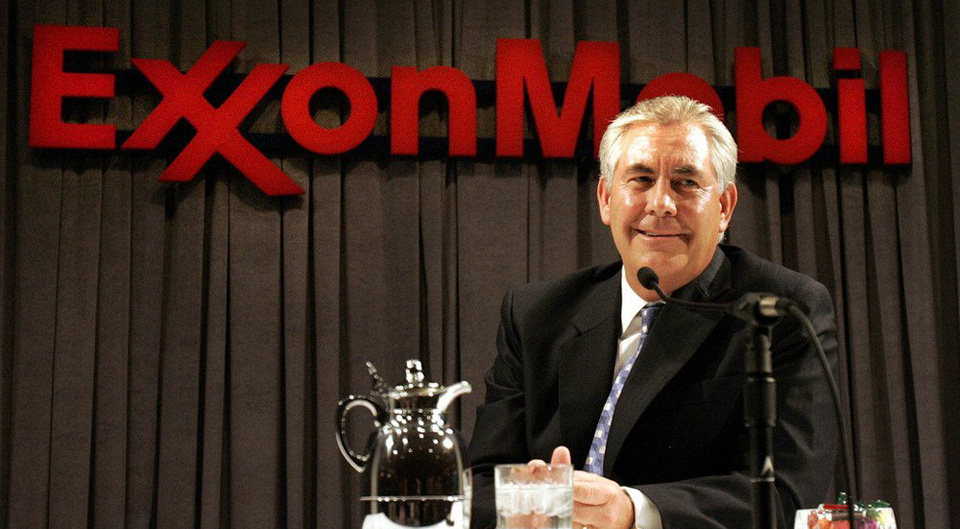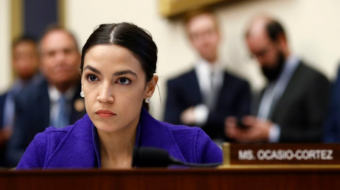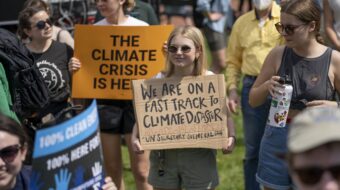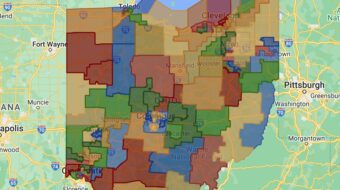
Donald Trump’s Secretary of State Rex Tillerson recently confirmed his support for regime change in Venezuela, stating that he would seek to work with right-wing governments and organizations in the region to replace the elected government of Nicolás Maduro.
The former ExxonMobil CEO said: “I would urge close cooperation with our friends in the hemisphere, particularly Venezuela’s neighbors Brazil and Colombia, as well as multilateral bodies such as the OAS (Organization of American States), to seek a negotiated transition to democratic rule in Venezuela.”
When it comes to Tillerson’s stance on Venezuela, it is worth noting that he lost a World Bank arbitration battle against the Venezuelan government over the nationalization of ExxonMobil assets.
The U.S. oil executive also hinted that financial restructuring would swiftly follow any change in Venezuela’s government, which he said would “pave the way for the kinds of reforms needed to put Venezuela on the path to economic recovery.”
At stake in Venezuela is whether the elected government determines its future or whether the country goes back to U.S. domination and the neoliberal policies of the IMF, which have so devastated the country and the region in the past.
Emboldened by the coup in Brazil and Mauricio Macri’s victory in the Argentinian elections, the right in Latin America and the U.S. clearly see this as their window of opportunity to get their hands back on Venezuela’s oil and reclaim their “backyard.”
During his presidential campaign, Trump publicly attacked Venezuela’s government, saying: “The next president of the United States must stand in solidarity with all people oppressed in our hemisphere. And I will stand with the oppressed people of Venezuela yearning to be free.”
It didn’t take long for Trump to turn these hostile words into action and it looks like more intervention is on the way.
The Trump administration has already put sanctions on Venezuelan Vice President Tarek El Aissami, citing alleged drug trafficking.
The U.S. Treasury Department froze all of El Aissami’s alleged assets in the U.S. under the Foreign Narcotics Kingpin Designation Act, making the vice-president the top-ranking official of any country to be sanctioned in this way.
Venezuela points out, however, that the Trump administration has yet to release any evidence in support of these accusations, while the U.S. Justice Department has not publicly opened investigations into El Aissami.
Decrying the sanctions as an “unprecedented act” in U.S.-Venezuelan relations, Venezuela argues that the Trump administration is violating international law.
Venezuela has made great steps in tackling drug trafficking under the Hugo Chávez and Maduro governments. In the last decade, it has increased its efficiency in drug seizures by 60 per cent, confiscating an annual average of 55.7 tons of narcotics.
During El Aissami’s own time as interior minister, he oversaw the arrest and prosecution of 102 drug kingpins, even extraditing as many as 21 accused drug traffickers to the United States itself.
Hawkish members of the U.S. Congress from both the Democratic and Republican parties welcomed the move, as they continue to push for yet more sanctions on the oil-rich country.
Republican congresswoman Ileana Ros-Lehtinen and Democratic Senator Bob Menendez issued a joint statement saying the step was “long overdue,” while Republican Senator Marco Rubio could not have been clearer when he said he hoped the sanctions were “only the beginning.”
These latest escalations come on top of the Obama administration’s executive order against Venezuela in 2015 which claimed the country was an “unusual and extraordinary threat” to the U.S.
Prior to these latest sanctions, 34 U.S. legislators had signed a letter to President Trump advocating greater sanctions, writing that “decisive, principled action in response to unfolding developments in Venezuela as one of the first foreign policy actions of your administration would send a powerful message to the Maduro regime and the Venezuelan people.”
Additionally, the signatories argued for increased U.S. funding for “democratic political processes, institutions and values that support human rights, freedom of information and independent civil society until the country returns to democratic governance.”
Currently, U.S. funding to Venezuela’s anti-democratic opposition under the Economic Support Fund stands at $6.5 million annually, but this is probably just the tip of the iceberg as in 2012 alone, it is thought the U.S. funded the right-wing opposition to the tune of $20 million.
The U.S. has been opposed to Venezuela’s socialist-oriented governments since Hugo Chávez was first elected in 1998, with the U.S. Office of the Inspector General conceding that the George W. Bush administration provided “training, institution building and other support” to groups involved in a military coup that briefly ousted the late Chávez in April of 2002.
Responding to the latest wave of U.S. hostility, Venezuela’s Maduro said: “I do not want to fight with Donald Trump, Venezuela wants respectful relations…but if they attack us, we are not going to remain silent.”
This is an edited version of an article that originally appeared in Morning Star.












Comments